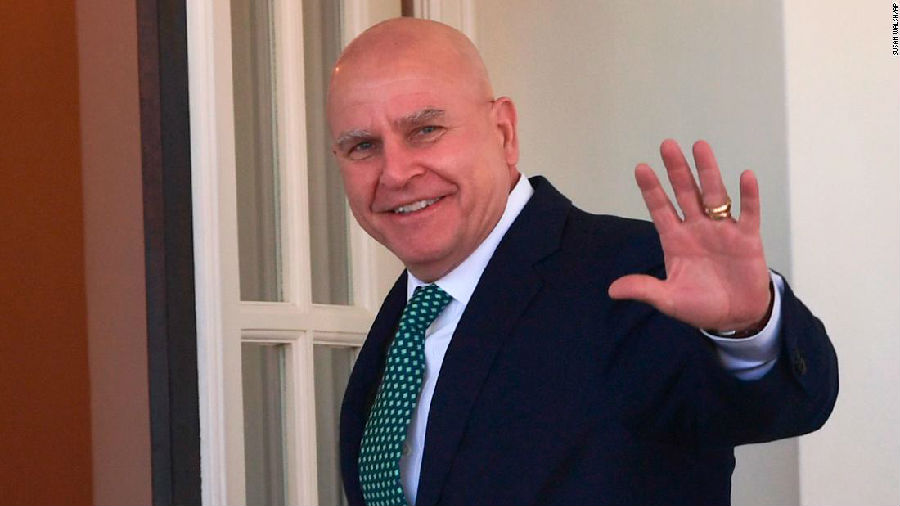The media accounts of his relationship with the President are largely true.
媒体对他与总统关系的报道大部分都是真实的。
When we get an assignment in the military, we call them “orders,”
我们在军队里接到任务时,我们称之为“命令”,
and this was a set of orders he would gladly have passed on.
而这是一套他应该会很乐意传达的命令。
But like a good soldier, he shouldered the pack and stepped into the White House
然而,他还是像一个好士兵一样,扛起背包,走进白宫,
to do what he could to create at least part of a guardrail system around this mercurial and unstable President.
尽他所能在这位反复无常又不安定的总统身边筑起一些护栏。
McMaster is a good judge of character.
麦克马斯特看人很准。
From the beginning, he knew he would deal with whipsaw views on the key elements of foreign policy,
从一开始,他就知道,他要面对在外交政策的关键要素面前摇摆不定的观点,
like watching positions on North Korea lurch from “fire and fury” to accepting a meeting with Kim Jong Un to cut a big, beautiful deal.
比如看着总统对朝鲜的态度从“怒气冲天”转变为同意与金正恩会面,再转变为达成一项重大而美好的协议。
No National Security Adviser could bring order out of the policy chaos any more than McMaster’s fellow general John Kelly could bring order to the process chaos.
没有哪个国家安全顾问能够像麦克马斯特的同僚约翰·凯利上将整治美国混乱的进程那样整治美国政策的混乱。
This is a President who revels in chaos.
我们现在的总统是一位醉心于挑起混乱的总统。

For a national-security team, that gives birth to the worst quality from an international perspective, especially an allied one: inconsistency.
对于一个国家安全事务团队而言,从国际角度来看,尤其是从国际盟友的角度来看,催生最糟糕的政府的做法就是:前后不一。
Trump has said he doesn’t want our enemies to know what we are thinking;
特朗普说过,他不想让我们的敌人知道我们在想什么;
the problem is, neither do our friends nor even, it seems at times, do we ourselves.
问题是,连我们的朋友,有时候甚至连我们自己都不知道我们在想什么。
McMaster worked hard to bring talent to the National Security Council staff,
麦克马斯特很努力地往国家安全委员会输送人才,
avoid turf battles and generate a coherent national-security strategy.
很努力地避免争夺势力范围的斗争,还很努力地制定连贯的国家安全战略。
When the strategy came out, I chatted with McMaster about it,
战略制定出来后,我和麦克马斯特聊了聊,
and he said, “America First doesn’t have to mean America Alone.”
他说,“美国优先并不意味着美国要把自己孤立起来。”
He managed to make the document shockingly normal,
他成功地让那份文件显得出奇地正常了,
while dropping out of the Trans-Pacific Partnership and the Paris climate accord were battles he could not win,
然而,退出跨太平洋伙伴关系以及退出巴黎气候协议两件事上他实在没有打赢的希望,
he managed to at least keep a sense of mainstream foreign-policy choices in play:
但他至少设法给了民众一种是主流的外交政策选择在发挥作用的印象:
a strong NATO, Asian alliances, countering a resurgent Russia and a rising China,
一个强大的北约-亚洲联盟,对抗着逐渐复兴的俄罗斯和日益崛起的中国,
a focus on cyber and energy, and other reasonable positions.
将精力集中在网络、能源以及其他合理立场上。
译文由可可原创,仅供学习交流使用,未经许可请勿转载。



